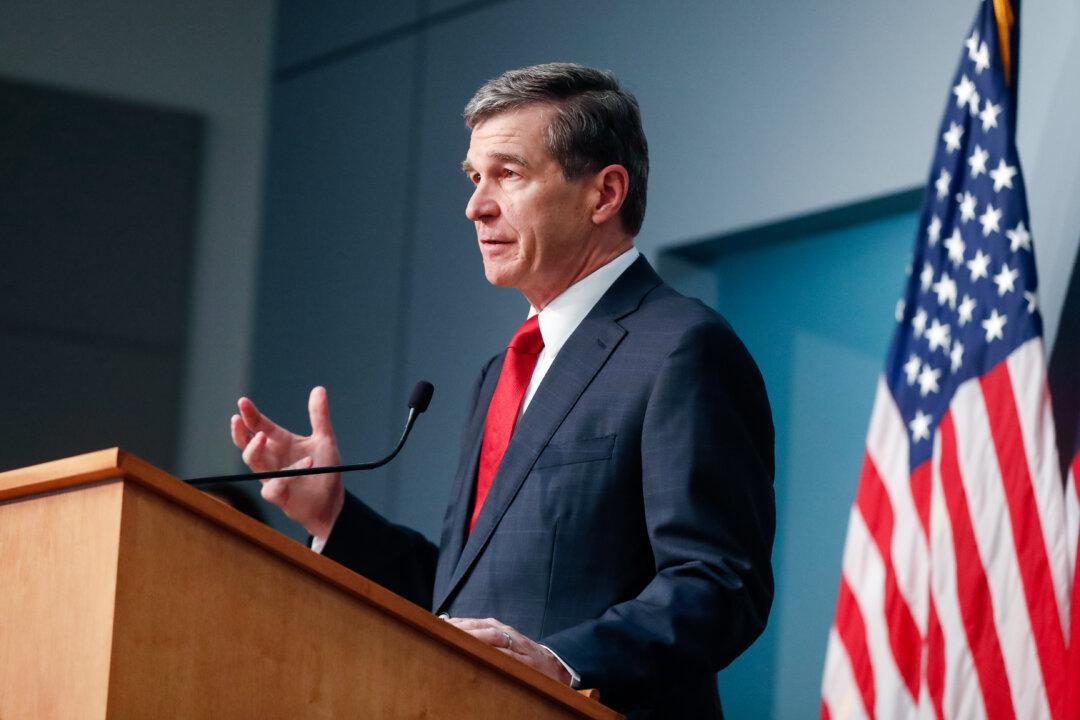A three-judge panel has sided with North Carolina’s Democrat Gov. Roy Cooper to strike down a Republican-sponsored law that would have removed the governor’s authority to appoint members of the state’s board of elections and granted it to elected representatives in the state’s Legislature.
In a 7-page order filed on March 11 at North Carolina’s Wake County Superior Court, a panel of three judges—two Republicans and one Democrat—sided with Mr. Cooper in finding that the GOP-enacted law is unconstitutional.





